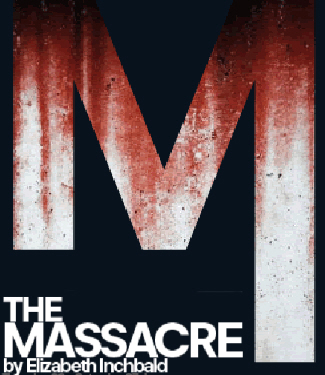
Synopsis
The freedom to hold your own beliefs without fear of persecution from others was a concept widely vocalised within the circles of radical thinkers with whom Elizabeth Inchbald was socialising at the peak of her career. This is one of the key concepts in 'The Massacre', following a family on the day a mob is descending on their estate. In the city, riots have led to violent genocide. In the family home they must decide what action to take: to fight, to flee or to reason with their persecutors. Little do they know their debate is futile; the mob is at their gates and their fate certain.
This play was an immediate reaction by Inchbald to the September Massacres of 1792 which raged through Paris during the French Revolution – one of the arguments raised by the play is the idea of revenge and whether violence is ever justified if you have been persecuted. Adapted from the earlier play Jean Hennuyer l’Évêque de Lisieux on the massacre of St Bartholomew in the 14th Century, Inchbald changed the structure and events in the play, paring back the specific references to Catholicism and Protestantism and making it stand for the events of the French Revolution.
In its construction, 'The Massacre' is a classical play, broadly adhering to the three unities of time, space and action. Its content is bloody, shocking and thought-provoking. Inchbald presents her debate on war with direct moral and political messages which the audience is forced to assess and analyse by the end of the piece.
The Theatre Royal's production was the first fully staged Georgian tragedy at the Theatre Royal and, although the piece was written in 1792, it was also the first professionally staged production of the play. 'The Massacre' was never performed in the author’s own lifetime as Inchbald suppressed it herself due to the controversial nature of the text.
Today, 'The Massacre' can be given a bold and uncompromised staging, staying true to the play’s original intentions as a broad reference to all contemporary acts of war, political and racial hatred.
Listen to a report on the Premiere production at the Theatre Royal, broadcast on the BBC's flagship news programme 'Today' on Radio 4 in June 2009.
|
 Loading... Please wait...
Loading... Please wait... Loading... Please wait...
Loading... Please wait...